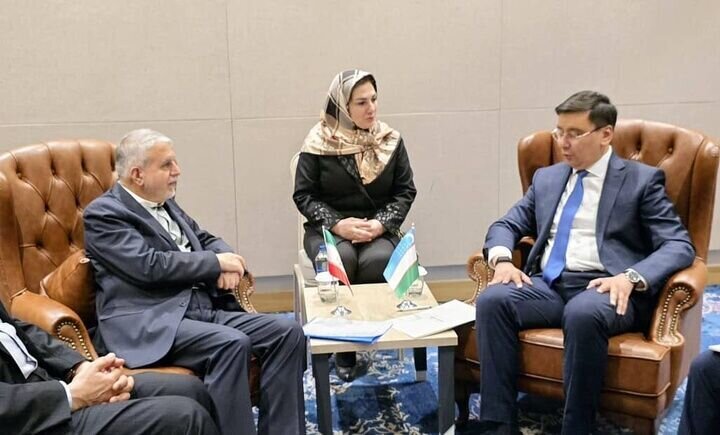Tehran – High-ranking Iranian and Uzbekistan officials held consultations aimed at supporting bilateral cooperation in the tourism sector, highlighting their shared civilization and cultural heritage as the basis for close collaboration.
Seyed Reza Salehi Amiri, Minister of Iran’s cultural heritage, tourism and crafts, reported on Saturday with Umid Shadyev, chairman of the Tourism Commission of Uzbekistan’s Ministry of Ecology, Environmental Protection and Climate Change.
The authorities discussed plans to strengthen promotional efforts to increase joint investments, cultural events and tourism exchanges.
Salehi-Amiri highlighted the deep historical ties between the two countries, saying that relations between the two countries go beyond traditional diplomacy and should be redefined in the context of shared civilized values. He noted that despite millions of Iranians travel abroad each year, Uzbekistan continues to be an immature destination.
The Iranian minister spoke about the cultural affinity that Iranians feel for Uzbekistan architecture and visual culture, referring to previous visits to Samarkand and Bukhara. He emphasized the need to promote cultural tourism as a means of reviving shared historical memories.
Salehi-Amiri proposed three important strategies to strengthen tourism bonds. We have signed a comprehensive understanding memorandum. Promoting tourism through media, tour operators and cultural influencers. It will host joint events and exhibitions in historic cities such as Tehran, Samarkand, Bukhara, Isfahan and Shiraz.
Elsewhere in his remarks, the Iranian minister has expressed that Iran is ready to convene a joint investment forum in the tourism sector. He emphasized that Iran has already prepared the infrastructure needed to double its tourism capabilities and is calling for it to raise cooperation to a strategic level.
Umid Shadiev welcomed Iran’s collaborative approach and expressed support for a wide range of tourism agreements, calling it the beginning of a new chapter in bilateral cultural relations. Looking back on his own visit to Iran, he said he felt a sense of rediscovering some of his own (cultural) identity, referring to the deep and authentic cultural connections between the two countries.
Shadyev praised the Tehran International Tourism Exhibition as an exceptional event in terms of professionalism and public engagement. Although he was unable to attend this year due to a conflict schedule, he affirmed Uzbekistan’s commitment to actively participate in future editions.
He also proposed scientific cooperation between Uzbekistan’s Silk Road University and the Institute of Cultural Heritage Research in Iran, and collaborative work in restoration, archaeology and professional training.
Iran is trying to reap jackpots from many tourist attractions, including centuries-old bazaars, museums, mosques, gardens, bridges, baths, madrasas, spirits, churches, tomb herds, and apartment complexes.
morning

